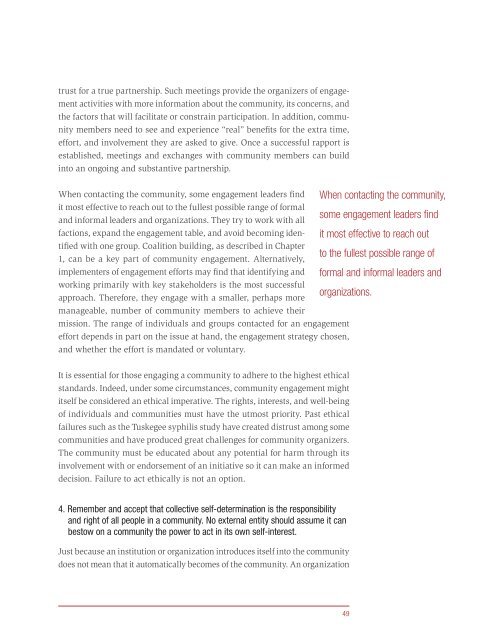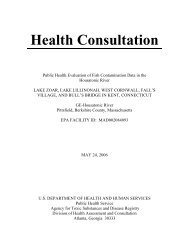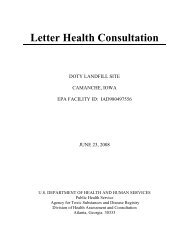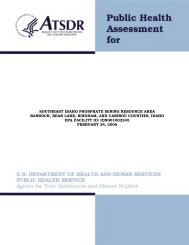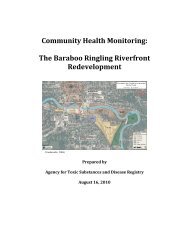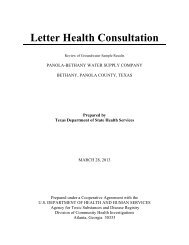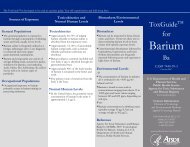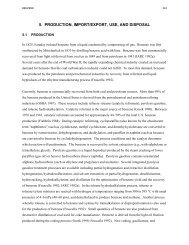Principles of Community Engagement (Second Edition)
Principles of Community Engagement (Second Edition)
Principles of Community Engagement (Second Edition)
Create successful ePaper yourself
Turn your PDF publications into a flip-book with our unique Google optimized e-Paper software.
trust for a true partnership Such meetings provide the organizers <strong>of</strong> engage-<br />
ment activities with more information about the community, its concerns, and<br />
the factors that will facilitate or constrain participation In addition, commu-<br />
nity members need to see and experience “real” benefits for the extra time,<br />
effort, and involvement they are asked to give Once a successful rapport is<br />
established, meetings and exchanges with community members can build<br />
into an ongoing and substantive partnership<br />
When contacting the community, some engagement leaders find<br />
it most effective to reach out to the fullest possible range <strong>of</strong> formal<br />
and informal leaders and organizations They try to work with all<br />
factions, expand the engagement table, and avoid becoming identified<br />
with one group Coalition building, as described in Chapter<br />
1, can be a key part <strong>of</strong> community engagement Alternatively,<br />
implementers <strong>of</strong> engagement efforts may find that identifying and<br />
working primarily with key stakeholders is the most successful<br />
approach Therefore, they engage with a smaller, perhaps more<br />
manageable, number <strong>of</strong> community members to achieve their<br />
mission The range <strong>of</strong> individuals and groups contacted for an engagement<br />
effort depends in part on the issue at hand, the engagement strategy chosen,<br />
and whether the effort is mandated or voluntary<br />
It is essential for those engaging a community to adhere to the highest ethical<br />
standards Indeed, under some circumstances, community engagement might<br />
itself be considered an ethical imperative The rights, interests, and well-being<br />
<strong>of</strong> individuals and communities must have the utmost priority Past ethical<br />
failures such as the Tuskegee syphilis study have created distrust among some<br />
communities and have produced great challenges for community organizers<br />
The community must be educated about any potential for harm through its<br />
involvement with or endorsement <strong>of</strong> an initiative so it can make an informed<br />
decision Failure to act ethically is not an option<br />
4. Remember and accept that collective self-determination is the responsibility<br />
and right <strong>of</strong> all people in a community. No external entity should assume it can<br />
bestow on a community the power to act in its own self-interest.<br />
Just because an institution or organization introduces itself into the community<br />
does not mean that it automatically becomes <strong>of</strong> the community An organization<br />
When contacting the community,<br />
some engagement leaders find<br />
it most effective to reach out<br />
to the fullest possible range <strong>of</strong><br />
formal and informal leaders and<br />
organizations.<br />
49


